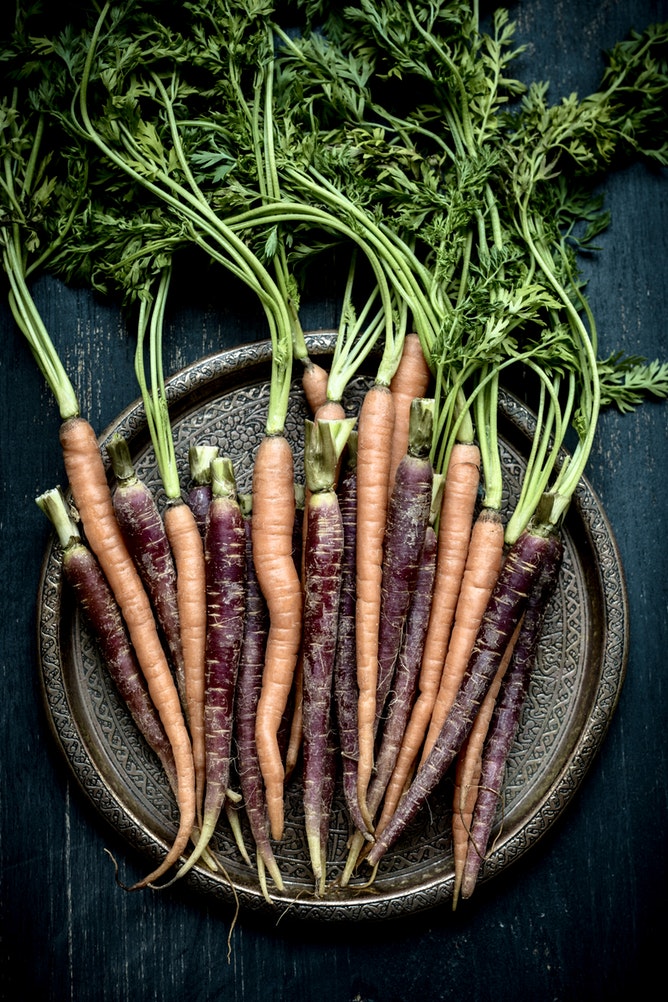We all know how good vegetables are for us, but most don’t consider root vegetables as an everyday staple. So, what are the benefits of eating more root vegetables?
Benefits of Root Vegetables
Root vegetables are considered a healthy source of carbohydrates. According to Teresa Fung, a professor of nutrition at Harvard School of Public Health, “they are so high in carbohydrates that they are more like grains than greens. It makes more sense to put them in the same category as breads, rice, or pasta.”
With the rise of ketogenic, or ‘keto’ diets, many are steering clear of carbs. However, healthy carbohydrates can be a great source of fiber, antioxidants, minerals and can even improve gut flora. With that in mind, these superfoods should be the linchpin to any healthy diet.
What exactly is a root vegetable?
Root vegetables are the underground, fleshy parts of certain vegetables. Surprisingly, not all vegetables in the culinary root category are actually roots. Many are considered bulbs and tuberous roots. Bulbs are vegetables like fennel and onions, while tuberous roots are sweet potatoes and white potatoes. What we think of as true root vegetables are carrots, beets, radishes, and turnips.
Why should I include root vegetables in my diet?
The root portion of the plant absorbs the most water and, fortunately for us, nutrients. This is what these plants use to support their own growth. The nutrient and mineral-dense composition of root vegetables make them perfect for getting in healthy carbohydrates.
Root vegetables are also great for replacing bread. Since root vegetables are mostly water, they’re a powerful way to cut calories. A medium baked sweet potato has around 100 calories, while a cup of turnips is only 50 calories. Some root vegetables even help fight disease.
Which root vegetables should I try first?
The mighty beetroot
Objectivity aside, beets are the ultimate root vegetable. My body is probably more beet than person at this point because I eat so many beetroots every day. They have a very unique nutritional profile that provides almost all the daily recommended micronutrients. They’re full of vitamin C, B6, magnesium, potassium, phosphorous, manganese, and iron while being low-calorie.
- Beets naturally lower blood pressure by 4-10 mmHg after ingestion. And, because beets contain dietary nitrates, they dilate the blood vessels around the heart. So, people who suffer from hypertension will benefit from incorporating beets in their diet.
- Studies show that when athletes consume up to 500 ml of beet juice their endurance is substantially improved. It increases the amount of energy available to the cells in our body and enhances oxygen availability. Sports scientists suggest eating beetroots two to three hours before exercise.
- Beets improve digestive health since they’re full of fiber and water. Adding more fiber to one’s diet has also been shown to decrease incidences of colon cancer.
- Beets also improve your mental health. Because of the dietary nitrates, more blood flow can be directed to the brain.
- Last, beets have powerful anti-inflammatory properties. This is because they have a pigment called betalain, which reduces inflammation in people with pain and osteoarthritis.
The succulent rutabaga
Like the beet, rutabagas also don’t get the respect they deserve. In many parts of the world it is actually called the swede, and it is a cross between cabbage and turnip. Many dishes utilizing the delicious taste of the rutabaga use it as a substitute for the potato. It has enormous nutritional value, with a multitude of vitamins and minerals. It has lots of potassium, manganese, calcium, phosphorus, zinc, and iron. If you’re currently taking vitamin supplements, you’ll be interested in eating rutabagas. Rutabagas are full of all the vitamins B, C, E and K you need in your diet. Here are some interesting facts about the rutabaga:
- Rutabagas may reduce your risk of cancer. The rutabaga has a compound that contains sulfur, glucosinolates which can decrease the development of tumors throughout the body.
- They can improve your digestive health. Like the beet, rutabagas are an excellent source of dietary fiber, making it a healthy solution to constipation. It can even help you lose some weight because the dietary fiber keeps you feeling full.
- Rutabagas contain a ton of vitamin C. And, it’s common knowledge that vitamin C can stimulate the production of white bloods cells, which are a necessary part of a healthy immune system.
- While the rutabaga doesn’t have dietary nitrates, it does have a lot of potassium. Potassium indirectly lowers a person’s blood pressure by limiting the contraction of blood vessels. You’ll want to add the rutabaga to your diet if you struggle with high blood pressure.
Carrots: do they improve eyesight?
Yes, it’s no myth that carrots improve our eyesight, thanks to their high vitamin A content. But carrots actually hold many other benefits too, such as:
- Reducing your risk of cancer. The beta-carotene can reduce your risk of getting colon and lung cancers in people who smoke. They can also decrease the risk of prostate cancer in men because of the synergistic properties of vitamin A, retinoic acid, and beta-carotene.
- Carrots also improve our dental health. They do this by reducing the amount of plaque on our teeth because they’re naturally abrasive. You may want to finish each meal with a raw carrot to keep your teeth pearly white.
To reduce your likelihood of developing chronic disorders like heart disease, osteoarthritis and stroke, you should try incorporating at least one cup of root vegetables into your daily diet.
Also by Alexis: Think You Might Be Depressed? 5 Facts About Depression To Set The Record Straight
Why A Vegan Diet Boosts Brain Health, According To Science
Get more like this—Subscribe to our daily inspirational newsletter for exclusive content!





